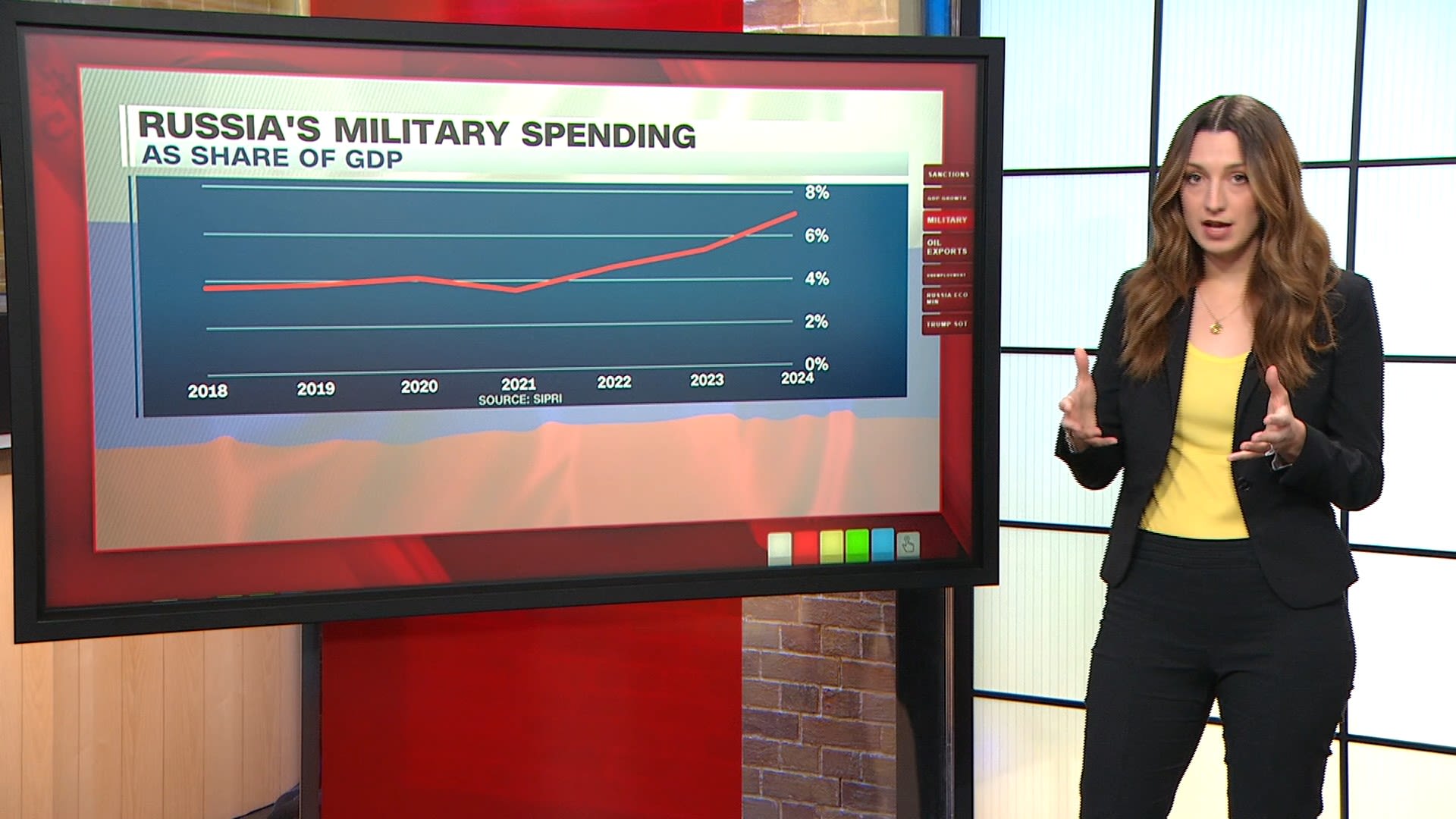Health
Trump and Putin Meet in Alaska: Business Talks Amid Tensions

US President Donald Trump and Russian President Vladimir Putin are set to meet in Alaska for crucial discussions aimed at advancing a peace agreement between Russia and Ukraine. This potential thaw in relations could open the door for American companies to resume business operations in Russia, a prospect that seemed unlikely just a year ago. During a recent flight on Air Force One, Trump remarked, “I noticed (Putin’s) bringing a lot of business people from Russia, and that’s good. I like that, because they want to do business, but they’re not doing business until we get the war solved.”
Attendees at the Alaska talks include key figures such as Anton Siluanov, Russia’s finance minister, and Kirill Dmitriev, a senior economic negotiator and head of Russia’s sovereign wealth fund. Trump indicated that he would consider discussing business opportunities if significant progress is made in peace negotiations. “They’d like to get a piece of what I built in terms of the economy,” he stated, highlighting an interest in reviving economic ties.
Despite these optimistic discussions, re-establishing business links with Russia presents considerable challenges. Following Putin’s invasion of Ukraine in February 2022, Western companies exited Russia in large numbers, leading to a significant corporate exodus. According to a report by the Yale School of Management, over 1,000 global companies have either ceased operations or drastically reduced their presence in Russia. Prominent firms such as Apple, Goldman Sachs, and Mastercard are among those that have withdrawn, leaving fewer American entities available to pursue new business opportunities.
As Western companies retreated, Chinese firms have stepped in to fill the void. Automakers and tech companies from China have increased their presence, while Russian entrepreneurs have launched alternatives to well-known Western brands. A notable example is Stars Coffee, which emerged following Starbucks’ exit, featuring a logo strikingly similar to its predecessor.
While the possibility of Western companies returning to Russia raises questions about consumer reception, the landscape for Russian energy exports has shifted dramatically. Sanctions imposed by Western nations have targeted Russia’s oil and gas revenues, which constituted approximately 30% of the federal budget last year, as noted in an analysis by the Oxford Institute for Energy Studies. The European Union has enacted a ban on seaborne imports of Russian crude oil and reduced its pipeline imports from over 40% in 2021 to around 11% last year. Nevertheless, Russia has successfully redirected its oil exports, with countries like India and China becoming significant customers. As of now, Russia accounts for 36% of India’s crude oil imports, solidifying its role as the top supplier.
Trump has threatened to impose tariffs on nations that continue to purchase Russian oil, aiming to leverage economic pressure on Putin to engage in negotiations. However, India has maintained its stance, asserting that Russian oil is vital for its energy security, particularly for a population exceeding 1.4 billion people. The intricacies of the sanctions, including a price cap on Russian oil established by the Group of Seven in 2022, complicate any efforts to fully restore business operations. This cap restricts companies in G7 countries from providing essential services for exporting Russian oil unless it is sold below a specified price threshold.
The logistical challenges of conducting business in Russia have intensified since the war began. Russian banks face difficulties in international transactions due to sanctions that have excluded certain institutions from the SWIFT messaging service, a critical communication network for global banks. According to Janis Kluge, a researcher at the German Institute for International and Security Affairs, re-admitting banned banks to the SWIFT network would require cooperation from the EU, complicating any potential financial recovery.
Corruption levels in Russia have also escalated, with the country ranking 154th out of 180 in the Corruption Perceptions Index by Transparency International, indicating a worsening situation from its previous ranking of 136th in 2021. This decline raises further concerns for American businesses considering a return to the Russian market.
For companies weighing the potential benefits of re-entering the Russian economy, the question remains: Is it worth the risk? With numerous obstacles ahead, the upcoming talks between Trump and Putin could set the tone for future business relations, but significant hurdles remain.
-

 Technology5 months ago
Technology5 months agoDiscover the Top 10 Calorie Counting Apps of 2025
-

 Technology3 weeks ago
Technology3 weeks agoOpenAI to Implement Age Verification for ChatGPT by December 2025
-

 Health3 months ago
Health3 months agoBella Hadid Shares Health Update After Treatment for Lyme Disease
-

 Health4 months ago
Health4 months agoAnalysts Project Stronger Growth for Apple’s iPhone 17 Lineup
-

 Health4 months ago
Health4 months agoErin Bates Shares Recovery Update Following Sepsis Complications
-

 Technology5 months ago
Technology5 months agoDiscover How to Reverse Image Search Using ChatGPT Effortlessly
-

 Technology3 months ago
Technology3 months agoElectric Moto Influencer Surronster Arrested in Tijuana
-

 Technology5 months ago
Technology5 months agoMeta Initiates $60B AI Data Center Expansion, Starting in Ohio
-

 Technology2 months ago
Technology2 months agoDiscover 2025’s Top GPUs for Exceptional 4K Gaming Performance
-

 Technology5 months ago
Technology5 months agoRecovering a Suspended TikTok Account: A Step-by-Step Guide
-

 Health5 months ago
Health5 months agoTested: Rab Firewall Mountain Jacket Survives Harsh Conditions
-

 Lifestyle5 months ago
Lifestyle5 months agoBelton Family Reunites After Daughter Survives Hill Country Floods




















